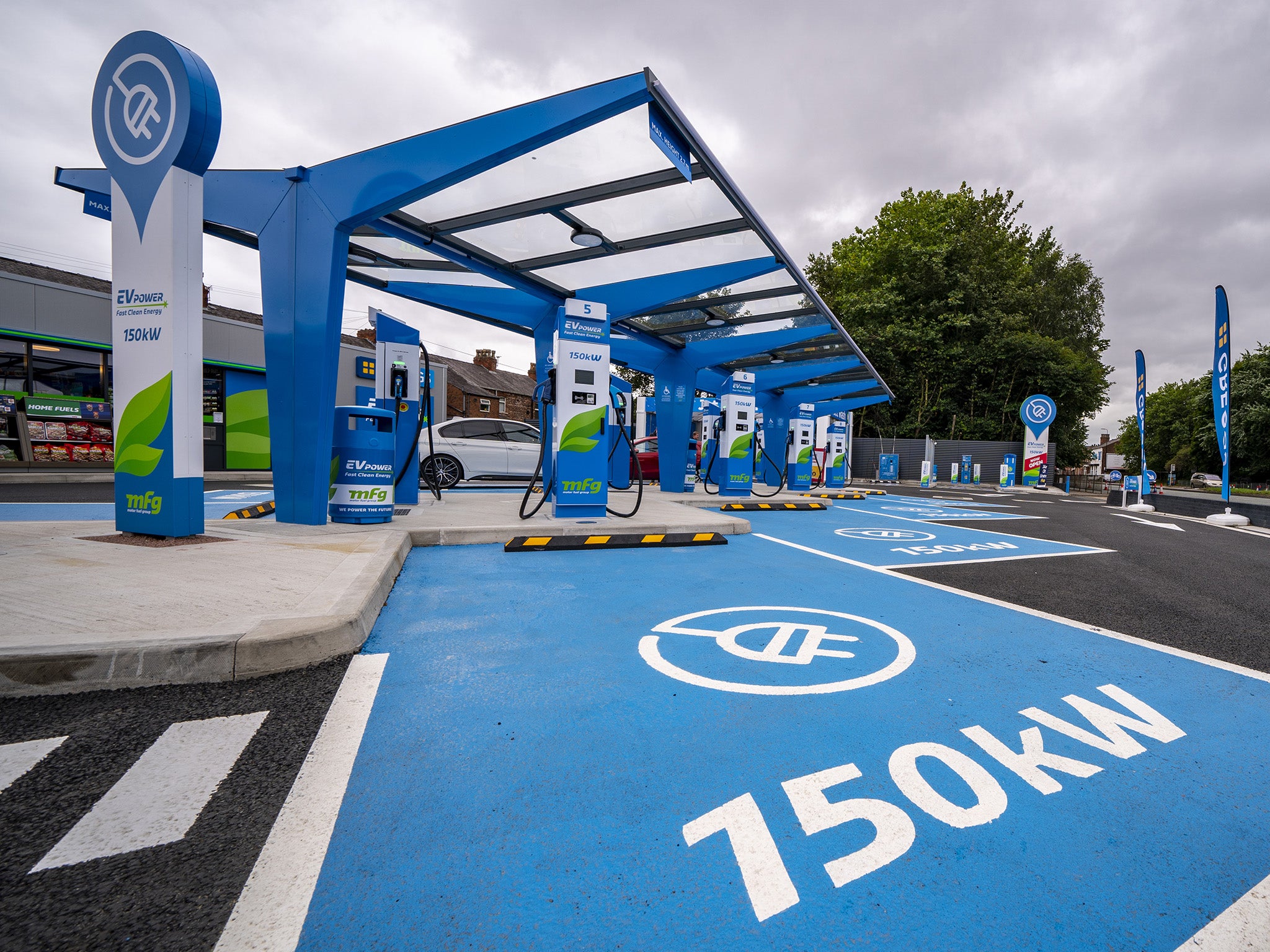Ofgem plans to cut costs for electric car charging and bring in payments for drivers
Owners could earn money by keeing cars plugged in, as Liam James explains

Energy regulators keen to encourage more people to switch to electric vehicles say they have devised a way for the national grid to accommodate a rising demand for electricity while keeping costs down for both operators and consumers.
The number of electric cars on Britain's roads has ballooned in recent years as technology has improved and warnings over carbon emissions have started to be taken more seriously.
There were barely 10,000 electric and hybrid electric cars licensed in the UK at the start of 2014. By 2020 there were almost 280,000. One year on and there are more than 450,000, leaving the grid scrambling to keep up with demand from charging sites.
Ofgem, the UK’s energy regulator, has laid out two proposals that could help the grid run more smoothly.
The first proposal is that larger charging sites be exempt from connection fees, which can be prohibitively expensive for prospective site operators.
Under the current system, if a new site needs so much electricity that more capacity is needed for the local grid, the company which runs the site has to pay a fee for upgrades. This can be especially costly in areas where the grid has low capacity levels, or is already under strain.
“We are proposing to remove connection charges for these network reinforcements, and instead recover these costs through the ongoing network charges paid by all users of the distribution system,” Ofgem said.
“This will make it cheaper to install new electric vehicle charging stations in the locations they are needed.”
Ofgem also wants to make better use of “smart charging”, where cars are charged outside of peak electricity use hours to relieve pressure on the grid.
The regulator proposes vehicle-to-grid (v2g) electricity sales, which will allow car owners to sell electricity back into the system when demand is high.
On the Kaluza energy platform, which since 2018 has installed 330 v2g devices around the country, car owners are paid 30p per kWh for electricity sold back to the grid. An Ofgem report found customers have earned as much as £725 a year by simply keeping their cars plugged in when not in use.
Ofgem said the two proposals “could reduce peak demand equivalent to the generation capacity of up to 10 large nuclear power stations” and would push down bills even for those who do not own electric cars.
The UK will have to decarbonise most of its transport system if it wants to be able to reach its net zero target by 2050.
According to the Committee on Climate Change, which advises the government, there could be 14 million electric cars on the road by 2030.
To support this, a network of charging points will be needed across the country. Neil Kenward, Ofgem director of strategy and decarbonisation, said: “Electric vehicles will revolutionise the way we use energy and provide consumers with new opportunities, through smart products, to engage in the energy market to keep their costs as low as possible.
”Our electric vehicle priorities not only provide a way to meet our climate change targets but importantly offer ways to protect consumers from rising bills, through a three-prong approach of increased use of electric vehicles, smart charging and vehicle-to-grid technology which together can help drive down costs for all GB bill payers.”






Join our commenting forum
Join thought-provoking conversations, follow other Independent readers and see their replies
Comments